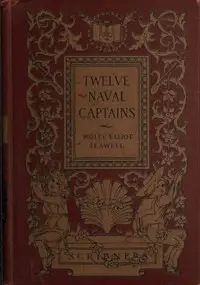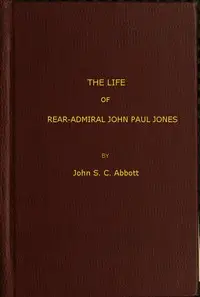"Admiral Farragut" by A. T. Mahan is a historical biography that recounts the life and accomplishments of David Glasgow Farragut, an important naval officer in American history. The biography begins by exploring Farragut's family history, tracing his father's Spanish background and his service in the Revolutionary War. It follows Farragut's early years, describing the key events and people that shaped his character and directed him toward a naval career. Mahan not only presents Farragut's development as a naval commander but also underlines the personal factors that transformed him into a distinguished admiral.

Admiral Farragut
By A. T. (Alfred Thayer) Mahan
Discover how a young man's heritage and early experiences forged him into a celebrated admiral who shaped the course of American naval history.
Summary
About the AuthorAlfred Thayer Mahan was a United States naval officer and historian, whom John Keegan called "the most important American strategist of the nineteenth century." His 1890 book The Influence of Sea Power Upon History, 1660–1783 won immediate recognition, especially in Europe, and with the publication of its 1892 successor, The Influence of Sea Power Upon the French Revolution and Empire, 1793–1812, he affirmed his status as a globally-known and regarded military strategist, historian, and theorist. Mahan's works encouraged the development of large capital ships — eventually leading to dreadnought battleships — as he was an advocate of the 'decisive battle' and of naval blockades. Critics, however, charged him with failing to adequately explain the rise of largely land-based empires, such as the German or Ottoman Empires, though Mahan did accurately predict both empires' defeats in World War I. Mahan directly influenced the dominant interwar period and World War II-era Japanese naval doctrine of the "decisive battle doctrine" , and he became a "household name" in Germany. He also promoted American control over Hawaii though he was "lukewarm" in regards to American imperialism in general. Four U.S. Navy ships have borne his name, as well as various buildings and roads; and his works are still read, discussed, and debated in military, historical, and scholarly circles.
Alfred Thayer Mahan was a United States naval officer and historian, whom John Keegan called "the most important American strategist of the nineteenth century." His 1890 book The Influence of Sea Power Upon History, 1660–1783 won immediate recognition, especially in Europe, and with the publication of its 1892 successor, The Influence of Sea Power Upon the French Revolution and Empire, 1793–1812, he affirmed his status as a globally-known and regarded military strategist, historian, and theorist. Mahan's works encouraged the development of large capital ships — eventually leading to dreadnought battleships — as he was an advocate of the 'decisive battle' and of naval blockades. Critics, however, charged him with failing to adequately explain the rise of largely land-based empires, such as the German or Ottoman Empires, though Mahan did accurately predict both empires' defeats in World War I. Mahan directly influenced the dominant interwar period and World War II-era Japanese naval doctrine of the "decisive battle doctrine" , and he became a "household name" in Germany. He also promoted American control over Hawaii though he was "lukewarm" in regards to American imperialism in general. Four U.S. Navy ships have borne his name, as well as various buildings and roads; and his works are still read, discussed, and debated in military, historical, and scholarly circles.

















